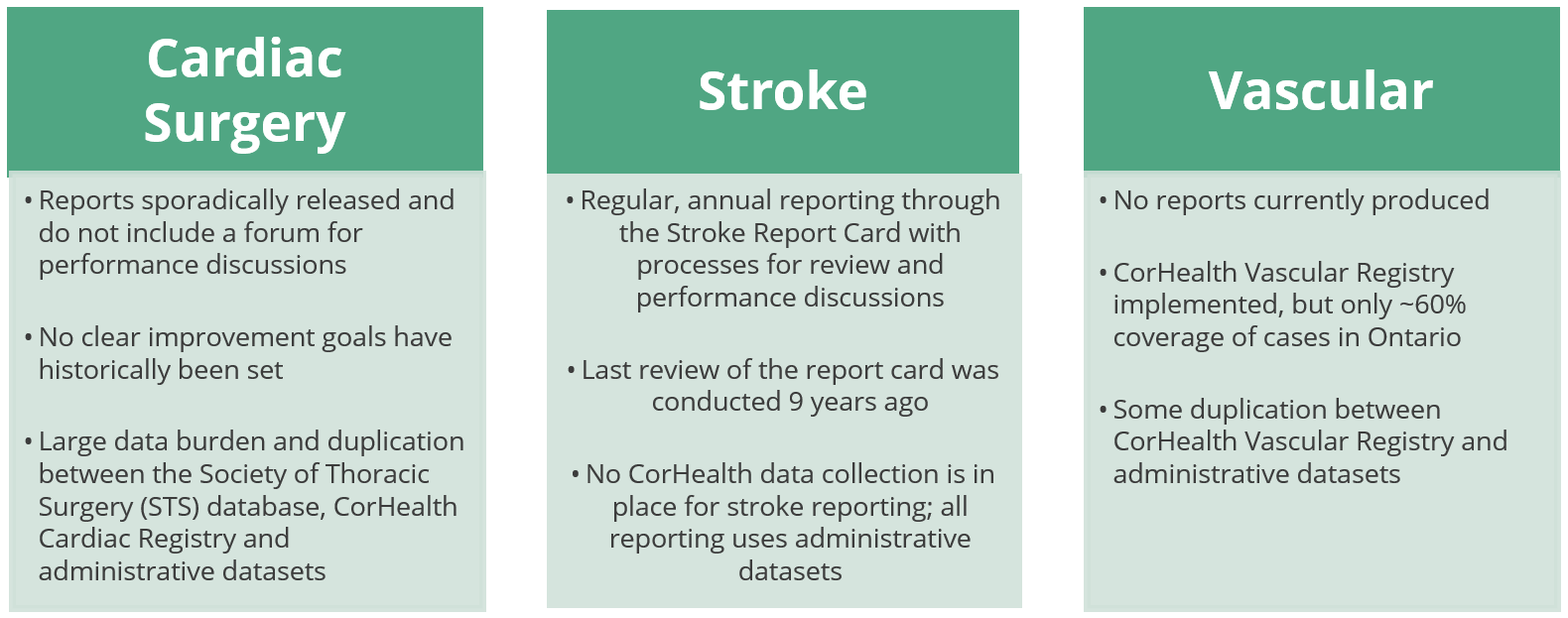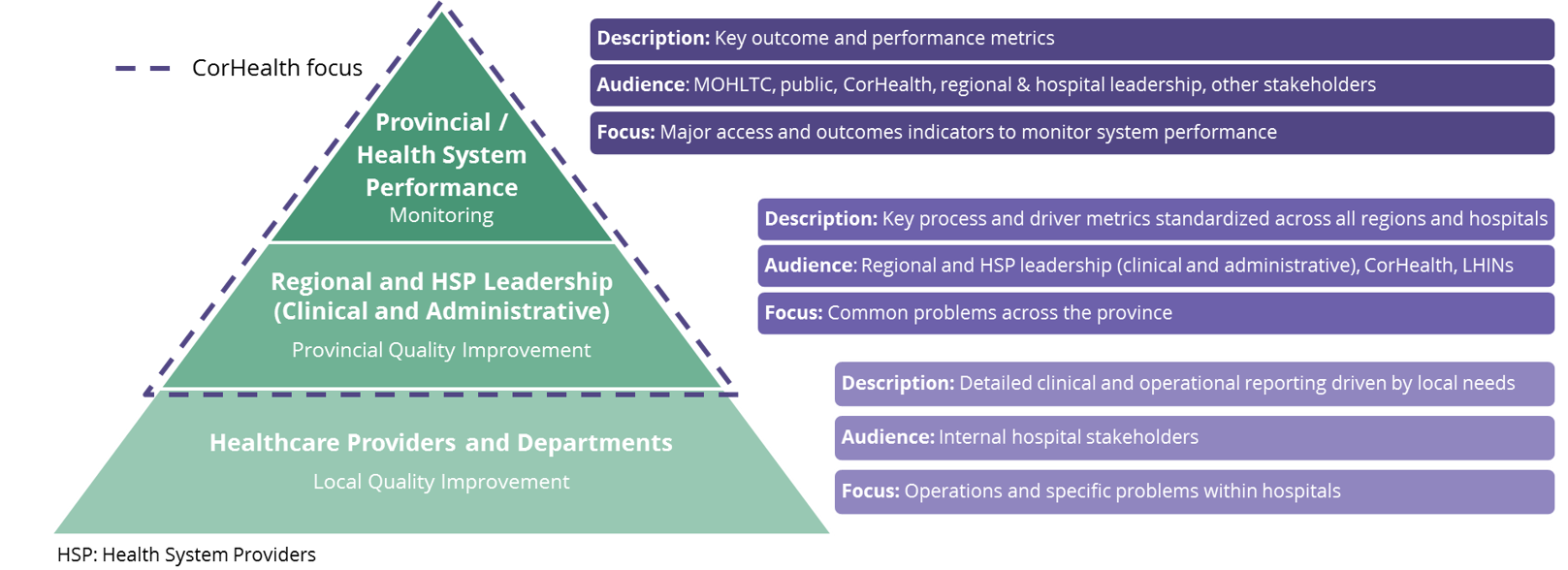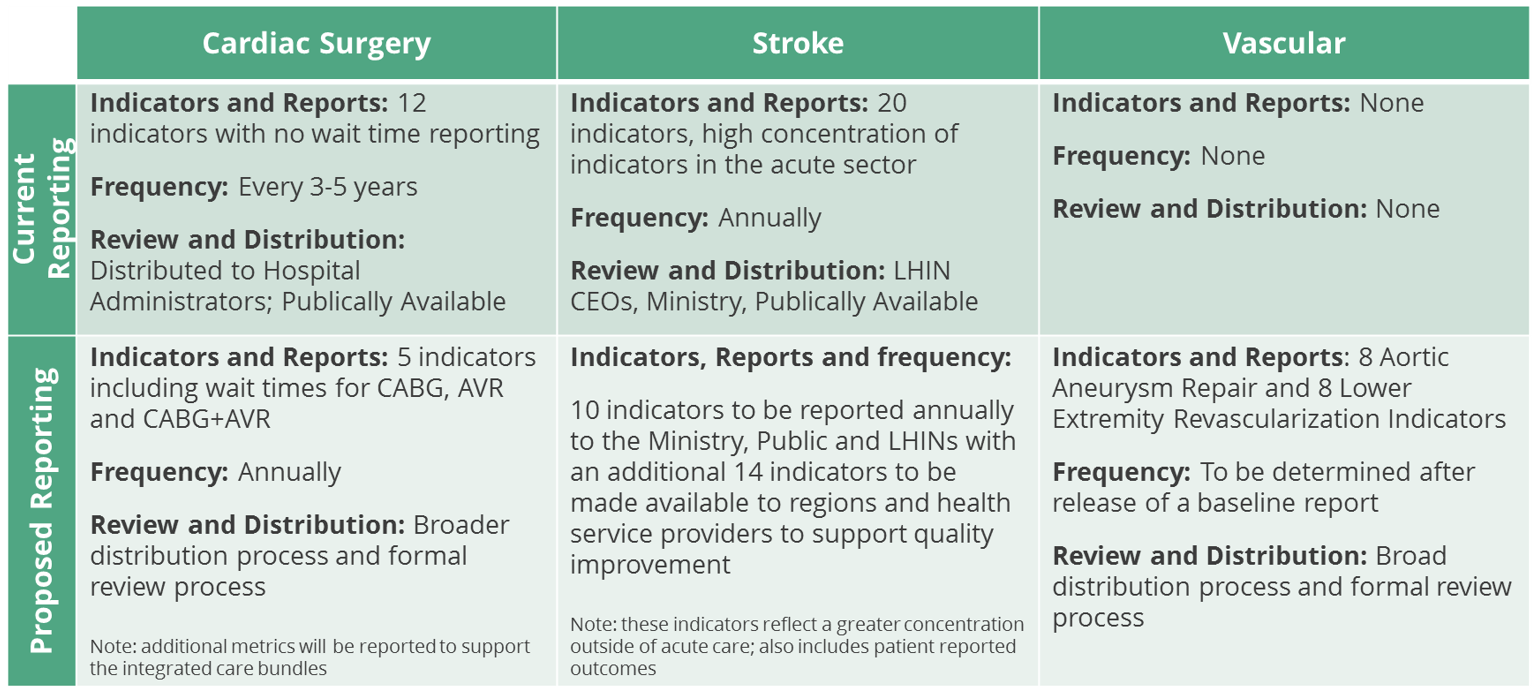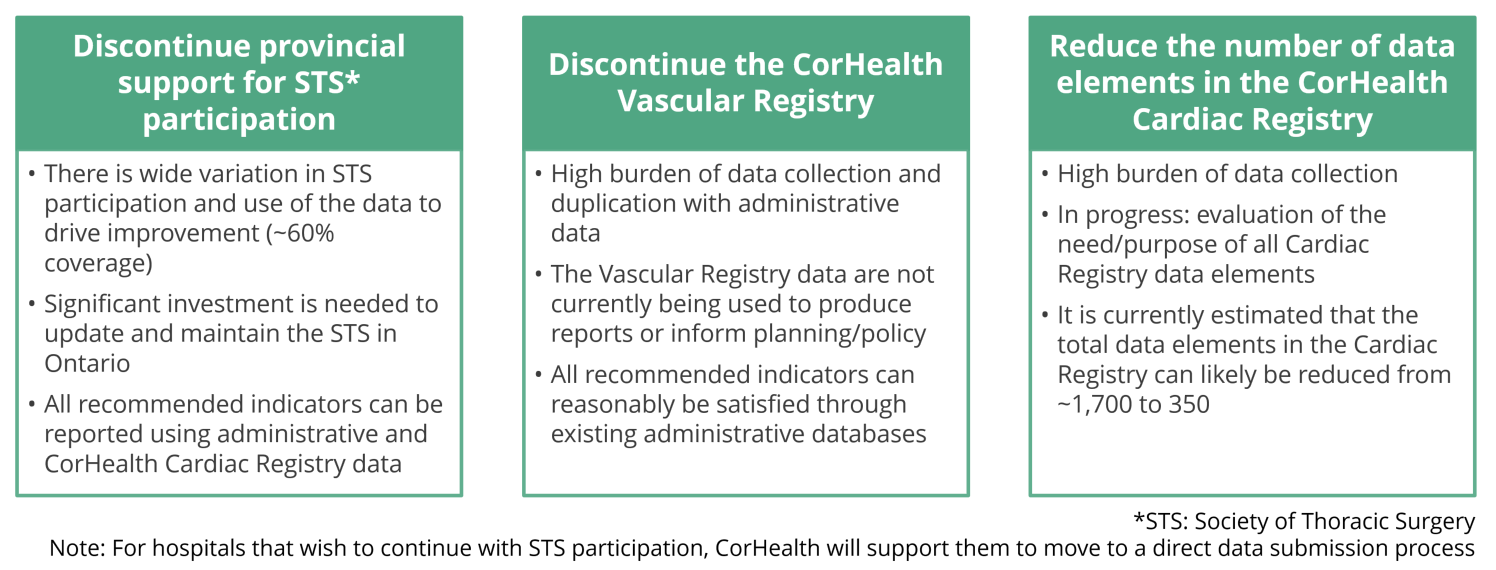Progress on CorHealth Ontario’s Information and Digital Strategy
In the June issue of CorHealth Quality, CorHealth Ontario introduced its Information and Digital Strategy. The goals of the strategy are to transform our approach to how we collect, manage, report and make accessible health care data to drive system improvement. Through the implementation of the strategy, stakeholders should experience a reduction in data collection burden and an enhanced value in CorHealth Ontario data and reporting on performance and patient outcomes.
A key priority in 2018/19 was to further define CorHealth Ontario’s baseline data and reporting needs across the cardiac, stroke and vascular clinical domains, and to make recommendations on how CorHealth Ontario can reduce its data burden on hospitals. Three Measurement and Reporting Task Groups were formed across the cardiac surgery, stroke and vascular clinical domains, and Dr. Adalsteinn (Steini) Brown, Dean of the Dalla Lana School of Public Health, was formally engaged to provide leadership and advice throughout the process.
Summary of Key Findings and Recommendations
In the current Ontario landscape, there is a strong recognition around the value and importance of reporting on clinical outcomes and performance to drive health system improvement. There is however, also the recognition that the volume of current reporting at the hospital and system level has led to confusion, lack of focus, and data overload. As shown in Figure 1, the current state of reporting by CorHealth Ontario across cardiac surgery, stroke and vascular care presents clear opportunities to enhance the value of our reporting and decrease the data burden on hospitals.

Through the work of the Task Groups and advice from Dr. Steini Brown, CorHealth Ontario further refined its purpose and focus for reporting. As presented in Figure 2, CorHealth Ontario’s focus will be on publicly reporting on a small number of key outcome and performance metrics across our clinical areas to monitor health system performance. Additional metrics will also be reported, as needed, directly to health service providers and regions. These metrics will focus on key driver and process indicators that should be measured consistently across the province to enable quality improvement efforts. CorHealth Ontario will not directly collect or report on additional data or metrics to support clinical operations or locally driven quality improvement initiatives within regions or health service providers.

After thoughtful discussion and input from the three Task Groups, specific reporting recommendations were developed for cardiac surgery, stroke and vascular care (specifically aortic aneurysm and lower extremity occlusive disease). These recommendations are summarized in Figure 3. It can be noted that, in general, fewer indicators have been selected for provincial-level monitoring, and it is recommended that a more robust and formalized reporting and review cycle will be established to support the use and interpretation of the reports in all three clinical domains.

The Task Groups also had robust discussions around the importance of sound risk adjustment, data quality and possible data sources. After careful evaluation and thoughtful discussion with the Task Groups, CorHealth has decided to discontinue the provincial data collection highlighted in Figure 4. Two critical principles in CorHealth Ontario’s Information and Digital Strategy guided this decision:
- CorHealth Ontario’s commitment to understand the purpose of the data it collects and to stop collecting data that is not aligned with CorHealth Ontario’s purpose and mandate
- CorHealth Ontario’s commitment to not duplicate data collection when another source can reasonably be used to support its data and reporting needs

Next Steps: Implementation
The above recommendations were approved by CorHealth Ontario’s Clinical Advisory Committee and Board. They were also endorsed by the Ministry of Health and Long-Term Care. CorHealth Ontario is in the process of planning and initiating the implementation of these recommendations and expect that most of them will be in place by the end of 2019/20.
March 2019 Articles:
- Letter from the Interim CEO - Moving Towards Integrated Health Care: Ontario’s Health System Transformation
- Introducing CorHealth Ontario’s Patient & Family Engagement Strategy
- Progress on CorHealth Ontario’s Information and Digital Strategy
- FY 2018/19 Q1/Q2 Endovascular Therapy Results
- Championing the Integrating Heart Failure Care Initiative, Heart Failure Quality Standard Now Available
- Ontario Vascular Program Evaluation Tool